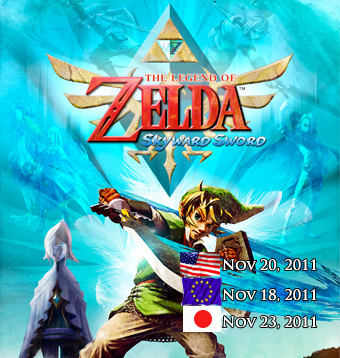
~Centuries ago, a great and terrible evil overtook the surface world. The people fought against the oncoming demonic hordes, but fell against the terrible power they possessed. Hylia, the goddess of the people, saw their terrible misfortune and joined the battle against the dark forces. When it was clear the dark ones would not relent, Hylia gathered the people on an outcropping of earth, and sent it skyward, high above the clouds. The goddess sealed away the evil forces below, and disappeared into the heavens. Much of the history of that great battle has become legend. The people of the new sky world, Skyloft, still worship the goddess Hylia, giving their praise and thanksgiving for their continued safety from evil. Twenty-five years ago, a knight academy was founded in an effort to train young men and women to better serve Skyloft. Two students of this very academy, our hero and the headmaster’s daughter Zelda, are blissfully unaware they are about to embark on a perilous journey to the world below in an effort to stop the very apocalypse sealed away by Hylia so many centuries ago.~
The Legend of Zelda Skyward Sword is hailed as one of the finest achievements in gaming, let alone the Legend of Zelda series. For the first time, players were given the opportunity to truly put themselves in the shoes of Link with the ability to, using the WiiMotion+, swing Link’s sword in whichever direction they please. Many of the conventions of the then 25 year franchise were challenged, such as the blurring of the line between landscape and dungeon, and the lack of an expansive central field to explore. The game received universal praise, scoring 10/10 from big names like IGN, Edge, and GameInformer, with minimal critical reviews. Skyward Sword set the standard for sword-based combat on future home console Zelda games.